Eczema, also known as atopic dermatitis, is a chronic skin condition characterized by red, itchy, and inflamed patches of skin.
Ayurveda, the ancient Indian system of medicine, offers a holistic approach to managing eczema by addressing its root causes through dietary changes, herbal remedies, topical applications, lifestyle adjustments, and detoxification methods.
Seven Ayurvedic Treatment For Eczema
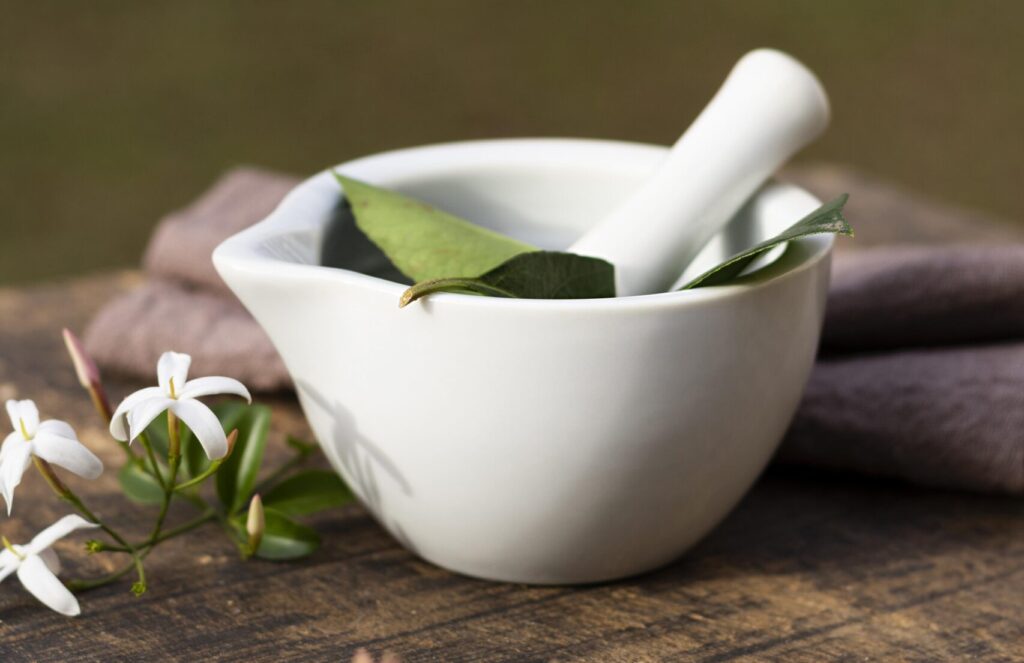
- Dietary Recommendation
- Herbal Remedies
- Topical application
- Lifestyle Practices
- Detoxification Methods
- Ayurvedic Massage
- Ayurvedic Supplements
Dietary Recommendations

Diet plays a crucial role in managing eczema.
According to Ayurveda, certain foods can aggravate the condition, while others can help soothe and heal the skin.
-
Avoid:
Spicy, sour, and salty foods, as they can increase Pitta dosha, leading to inflammation.
-
Include:
Cooling and calming foods like cucumbers, melons, and leafy greens.
-
Bitter and Astringent Foods:
Turmeric, neem, and amla are beneficial for their anti-inflammatory and detoxifying properties.
-
Hydration:
Drink plenty of water to stay hydrated and help flush out toxins.
-
Avoid Processed Foods:
Steer clear of refined sugars and excessive dairy products, which can exacerbate eczema.
Herbal Remedies
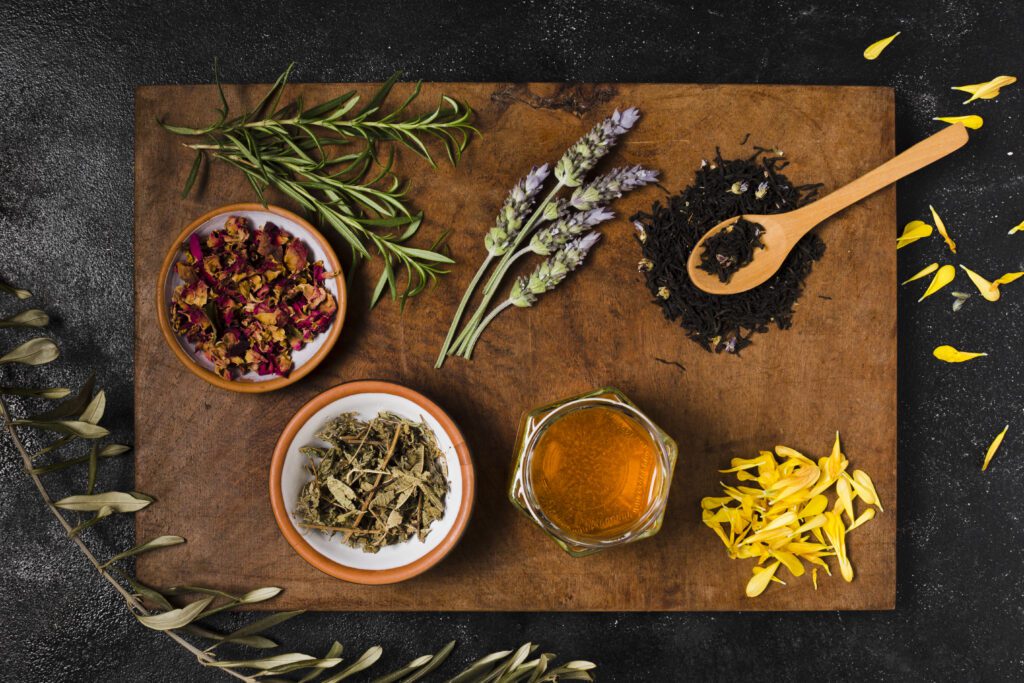
Ayurvedic herbs are known for their powerful healing properties. These herbs can be taken internally or applied topically to manage eczema symptoms.
Known for its anti-inflammatory and antibacterial properties, neem helps reduce redness and infection.
With its anti-inflammatory and antioxidant benefits, turmeric can help reduce inflammation and promote healing.
-
Manjistha (Rubia cordifolia):
This herb purifies the blood and reduces inflammation.
Soothes and moisturizes the skin, providing relief from itching.
-
Licorice Root (Glycyrrhiza glabra):
Reduces inflammation and soothes irritation.
Topical application
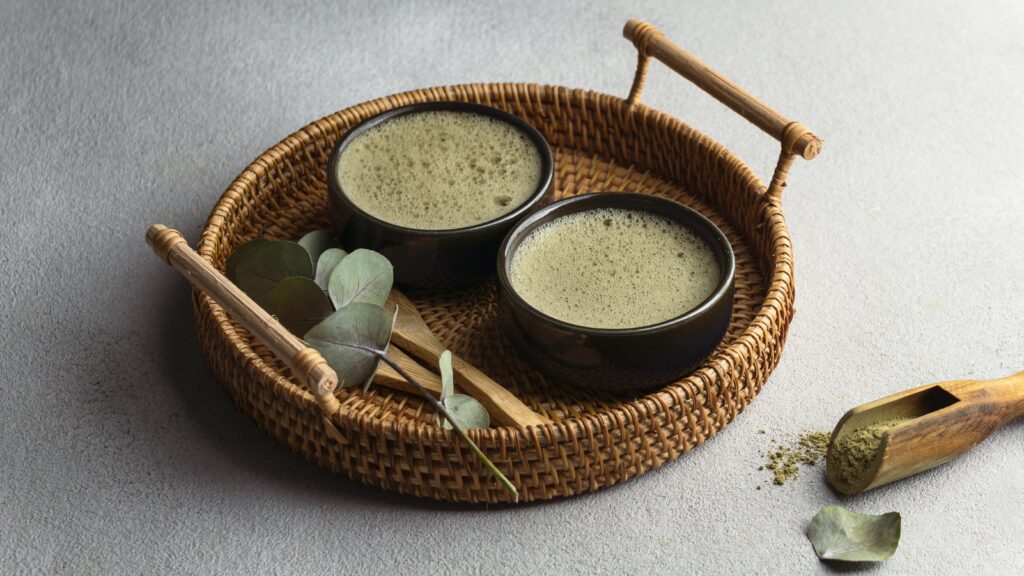
Applying certain natural substances directly to the skin can provide immediate relief from eczema symptoms.
-
Coconut Oil:
Moisturizes and soothes dry, itchy skin.
-
Aloe Vera Gel:
Provides cooling relief and reduces inflammation.
Its antibacterial and antifungal properties help prevent infections.
Applying a paste made from turmeric and water can reduce inflammation.
-
Sandalwood Paste:
Soothes and cools the skin, reducing itching and redness.
Lifestyle Practices
Adopting specific lifestyle practices can significantly impact the management of eczema.
-
Regular Sleep Schedule:
Supports overall health and skin healing.
-
Stress Reduction:
Engage in yoga and meditation to reduce stress, which can trigger eczema flare-ups.
-
Avoid Harsh Conditions:
Stay away from extreme temperatures and harsh chemicals.
-
Breathable Clothing:
Wear loose, breathable clothing made from natural fibers to reduce skin irritation.
-
Lukewarm Baths:
Bathe with lukewarm water and avoid hot showers, which can dry out the skin.
Detoxification Method
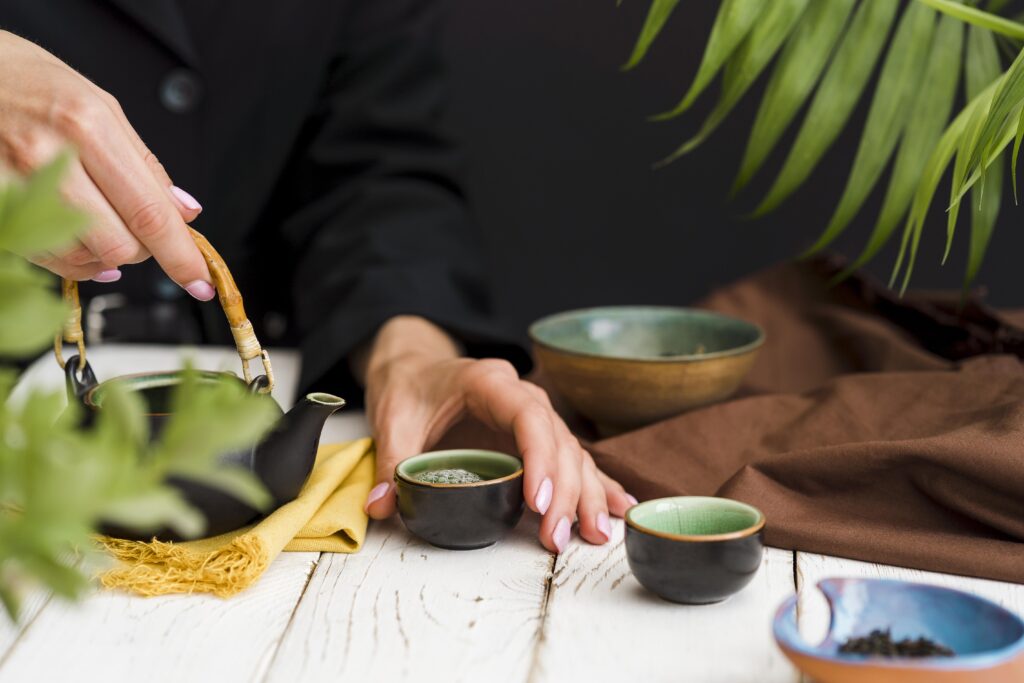
Detoxification helps remove toxins from the body, which can improve skin health and reduce eczema symptoms.
-
Panchakarma:
A comprehensive detox program that includes therapies like Vamana (emesis) and Virechana (purgation) under the guidance of an Ayurvedic practitioner.
Drink teas made from ginger, turmeric, and neem to help detoxify the body.
A blend of three fruits (Amalaki, Bibhitaki, and Haritaki) that supports digestion and detoxification.
-
Dry Brushing:
Gently brush the skin to improve circulation and lymphatic drainage.
Swish coconut or sesame oil in your mouth for 10-15 minutes to help remove toxins.
Ayurvedic Massage
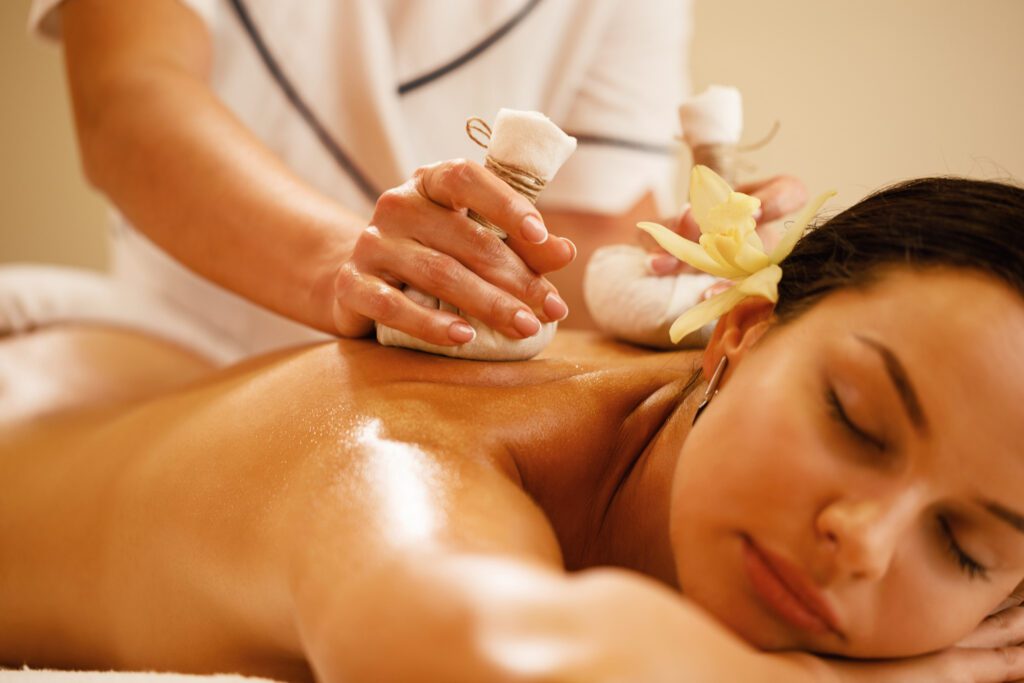
Abhyanga is a form of Ayurvedic massage using warm herbal oils tailored to an individual’s dosha. Regular abhyanga can help:
-
Moisturize the Skin:
Oils like sesame, coconut, or almond oil penetrate deeply to nourish the skin.
-
Improve Circulation:
Enhances blood flow and helps in detoxification.
-
Reduce Stress:
The calming effect of abhyanga can lower stress levels, which in turn helps manage eczema.
Ayurvedic Supplements
Certain Ayurvedic supplements can support the body’s overall health and help manage eczema from within.
-
Guduchi (Tinospora cordifolia):
Known for its immune-boosting and anti-inflammatory properties.
Helps reduce stress and boosts overall vitality.
-
Amalaki (Emblica officinalis):
Rich in Vitamin C, it supports immune function and skin health.
Conclusion
Ayurveda offers a comprehensive and natural approach to managing eczema by addressing its root causes and promoting overall skin health.
By incorporating these dietary changes, herbal remedies, topical applications, lifestyle practices, detoxification methods, Ayurvedic massages, and supplements into your routine, you can effectively manage eczema and improve your quality of life.
Reference Blog:https://www.healthline.com/health/ayurvedic-treatment-for-eczema#panchakarma-therapy
